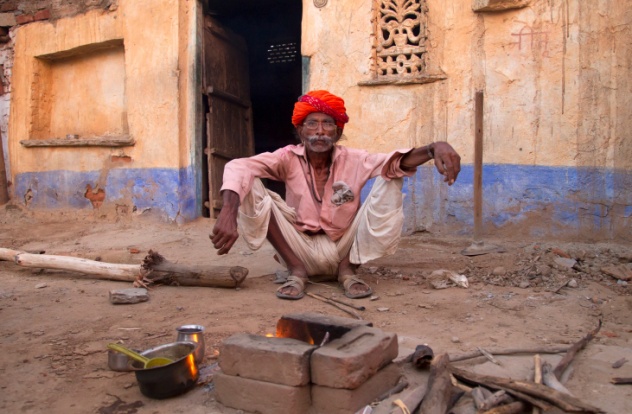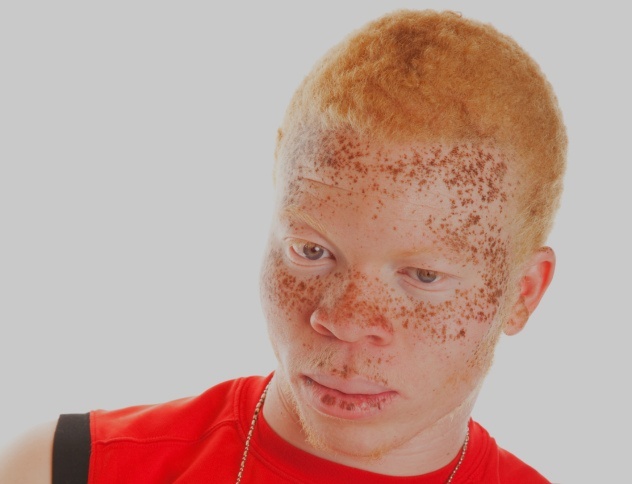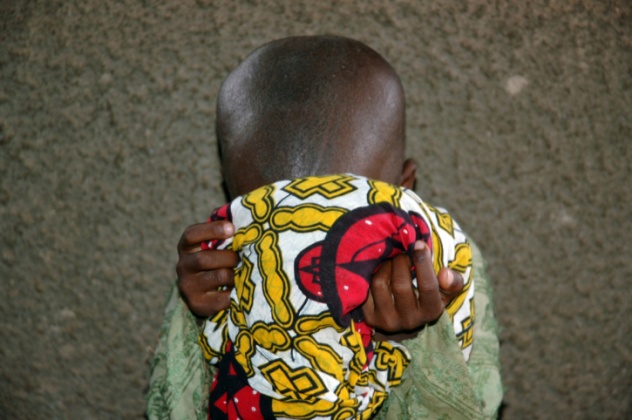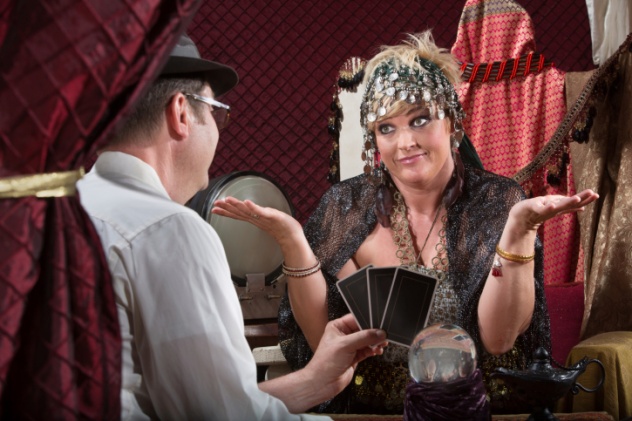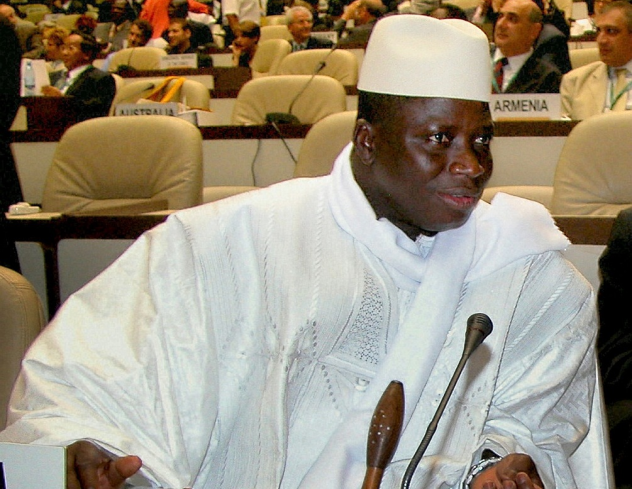10 Anti-Witchcraft UnitSaudi Arabia
The Saudi kingdom is so nervous about sorcery that its religious police, the Committee for the Promotion of Virtue and the Prevention of Vice (CPVPV), has a dedicated anti-witchcraft unit and a sorcery hotline. Astrology, fortune-telling, witchcraft, and interaction with supernatural jinn are all considered crimes against Islam punishable by imprisonment, lashes, and even execution by beheading. As Saudi Arabia has no penal code, the religious police and judges have wide discretion in deciding what sorcery is, and accusations are often made against foreign nationals practicing traditional beliefs or folk customs, particularly those from Sri Lanka, Indonesia, and African countries. Apparently, the Saudi religious police and judiciary define sorcery the same way that the US Supreme Court defines pornography: They know it when they see it. And they see it a lot. One Eritrean national was imprisoned and lashed for carrying a personal book of phone numbers written in the Tigrinya alphabet, which the CPVPV assumed must be a magical talisman because of the funny letters. The anti-witchcraft unit receives tip-offs from the public about a suspected witch or sorcerer and then investigates the charges. Evidence collected by the witchcraft unit includes witness statements, unusual personal belongings that look like they could be magical, or a history of strange requests, such as asking to purchase an animal with unusual physical features. Despite there not being any specific laws outlawing sorcery or witchcraft, the death penalty has been widely applied to those accused of dealing in magic. Lebanese radio personality Ali Hossein Sabat was performing the Hajj (a pilgrimage to Mecca) in 2008 when he was arrested by the CPVPV for providing psychic advice on his show. The religious police tricked him into writing a document detailing what he did for a living, which was then treated as a confession in court. Sentenced to death, he was spared on the day of his scheduled execution after pressure from the Lebanese government and human rights groups. Others have not been so lucky. In 2011, a Sudanese man was beheaded in a public parking lot on charges of sorcery. His crime was producing a spell to help a client’s estranged parents to reconcile.
9 Harmful Occult-Related Crimes UnitSouth Africa
South Africa founded its occult crimes division in 1992 in response to a panic about Satanism, itself linked to earlier panics in the United States set off by overreaction to Dungeons and Dragons. It was founded by Dr. Kobus “Hound of God” Jonker, who has been fighting the occult since the early 1980s. The Satanism panic hit relatively conservative South Africa harder than Western countries. The fact that many crimes in South Africa feature elements of traditional African beliefs or rituals meant that the all-Christian police force were convinced that they were engaged in a major war on the forces of Satan, investigating such crimes as harmful curses, vampirism, astral coercion, and “alleged rape by a tokoloshe spirit.” Jonker claims to have investigated 250 occult crime cases per year during the unit’s heyday in the 1990s, with cases involving the discovery of a Chinese woman’s severed head, several demonic possession cases, and evidence stolen by Satanists within the police force. Dr. Jonker retired in 2001 following a heart attack, and increasingly negative publicity from legitimate pagan and Satanist groups in the country led to the unit’s supposed disbanding in 2006, but it was later revealed that the unit had merely gone underground and kept a low profile to avoid scrutiny while continuing to train investigators to tackle occult crimes. In 2012, a leaked police memo revealed that the unit had been officially reinstated under a new name, SAPS Harmful Religious Practices Unit, in response to a rise in occult-related crime among black youth. Occult crime is now defined as “crime that relates to or emanates primarily from an ostensible belief in the supernatural that formed a driving force in the crime.” The unit has distributed pamphlets detailing signs of a person becoming involved in “harmful religious practices,” including wearing black, acting strangely, underperforming in school, reading and watching black magic books and movies, cutting, and showing strange signs or symbols. Colonel Dr. Attie Lamprecht, the current section commander, told the media his bailiwick included dealing with problems arising from blood-drinking youths, witch hunts, organ harvesting for sorcery, as well as fraudulent witch doctors claiming to bring back lost lovers or increase penis size.
8 Anti–Black Magic LawIndia
In 2013, anti-superstition activist and rationalist thinker Dr. Narendra Dabholkar was shot dead in the city of Pune, Maharashtra, by two youths riding a motorbike, in what police believed was a planned assassination linked to right-wing extremist groups. Dr. Dabholkar had been pushing for the adoption of an anti-superstition law, and following his death, protests erupted in favor of the law. The next day, the Maharashtra government quickly pushed through a bill to make black magic illegal in the Indian state, the Maharashtra Prevention and Eradication of Human Sacrifice and Other Inhuman, Evil and Aghori Practices and Black Magic Bill, proposed a decade earlier and stuck in a draft form since 2011. Actions that constitute black magic under the bill include various methods for exorcising a spirit, such as beating or whipping a person, making them drink footwear-soaked water, giving chili smoke, plucking out their hair, and forcing them to commit sexual acts or consume urine or feces. Also included are human sacrifice, performing fake miracles, claiming to be possessed by a spirit, creating public panic by invoking ghosts or mantras, proscribing magical medical techniques or psychic surgery, claiming magical powers in order to engage in sexual relations, or claiming a mentally handicapped person possesses supernatural powers in order to make money. Some opponents have claimed the bill attacks certain aspects of the Hindu religion. Others have claimed that the bill doesn’t go far enough, lacking provisions to allow the police to take as evidence third-party information about fake black magic practitioners. The first arrests made under the bill were two supposed witches, said to have enticed a young woman to lie next to a corpse to cure her of black magic influence. But the bill has had some unexpected side effects. Indian superstar Amitabh Bachchan ran afoul of the bill after he appeared in a health drink commercial with a ghost character, supposedly violating the law because there was “no disclaimer that the ad was imaginary.” Luckily, this interpretation was struck down in court.
7 Albino Task ForceTanzania
In some African countries, the skin and body parts of albinos are considered to have magical powers. As a result, many albinos are killed and have their body parts cooked up to make magical potions by alleged witch doctors. Albino body parts are meant to be useful in spells designed to bring wealth and power, and there is even a lucrative international trade. The limb of an albino person sells for $2,000–$4,000, while a complete set of organs can net up to $100,000. Many people in the region believe that albinos are not real humans but rather ghosts or phantoms. Over 100 albinos were violently attacked in Tanzania from 2006–2012, with 71 ultimately being killed. Some political campaigners are even believed to visit fortune tellers who use albino body parts to divine the outcomes of elections, causing attacks to rise in 2015 in anticipation of the October presidential and general election. In January of that year, after the well-publicized kidnapping of a four-year-old albino girl, the Tanzanian government announced a ban on witchcraft in the country and formed a task force to address the killings, including Ministry of Home Affairs officials and members of the Tanzania Albino Society. Their mission is to travel to regions most affected by the killings in order to liaise with law enforcement, investigate factors behind the atrocities, and review judicial rulings that may have been too lenient. Meanwhile, Tanzanian police have had to deal with the fallout of witch hunts that occur when albino people go missing, after which vigilantes accuse innocent elderly women of involvement and sometimes hack them to death. Many of the women targeted had red eyes, which is considered a sign of being a witch in Tanzania. Many of those targeted have been women inheriting land, who are accused of witchcraft by male relatives who wish to take their property.
6 Sorcery ActPapua New Guinea
In 1971, the Independent State of Papua New Guinea (still under Australian colonial control at the time) passed the Sorcery Act “to prevent and punish evil practices of sorcery and other similar evil practices.” The law distinguished between evil sorcery and innocent sorcery, defined as sorcery which is accepted as inoffensive by the local community and intended to have a non-harmful, curative, or protective effect. For harmful acts of sorcery, known as sanguma, the act justified the conviction of those indirectly involved, as well as those who aid and abet them, those who make false reports of sorcery, and those in possession of sorcerous implements. Much of the problem with PNG sorcery was that despite the laws, police were often reluctant to get involved, declaring accusations of witchcraft and sorcery to be samting bilong ples (things that should stay in the village). Instead, vigilante groups were the main instigators of anti-sorcery action, often targeting elderly women and subjecting them to rape, stoning, electrocution, being buried alive, dragged behind vehicles, forced to drink petrol, and even burned at the stake. Increased mobility of the population only caused the number of attacks to increase. In May 2013, the Papua New Guinean government repealed the Sorcery Act and expanded the death penalty in response to increasing lawlessness and “to stop this nonsense about witchcraft” in the words of Prime Minister Peter O’Neill. In January 2015, four women accused of sorcery following a measles outbreak in PNG’s Enga province were saved by intervention from police and missionaries.
5 Project VioletUnited Kingdom
London’s Metropolitan Police established Project Violet in order to stem violence against children linked to witchcraft or spirit possession after a number of horrifying incidents. In 2000, eight-year-old Victoria Climbie died of hypothermia, malnutrition, and physical abuse after her parents accused her of witchcraft. The following year, the headless and limbless torso of six-year-old Ikpo Mwosa was found in the Thames. He had been fed a potion of bone, clay, gold, and a paralyzing agent before being killed in an apparent ritual. The impetus for the launch of Project Violet was the sad case of Child B, who was found bloody and bruised on the steps to her flat building in 2005. She had been beaten, cut, burned, had chili powder rubbed into her eyes, and forced into a large plastic bag, all because her aunt thought she was a witch and accused her of being possessed by evil spirits. Investigation revealed that religious leaders at some of London’s Congolese churches were accusing children of witchcraft. Project Violet provides instructions for police and social workers across the country for identifying the language used by those who believe in spirit possession (“the child has something in them” and “squeeze the life out of the evil”) and signs that can indicate a child is being harmed. It also indicates the children most vulnerable to witchcraft accusations, such as those with congenital defects, physical disabilities, a stammer, learning difficulties, being unusually gifted, stepchildren, trafficked children, and bed-wetters. The police of the unit work closely with religious leaders from Churches’ Child Protection Advisory Service (CCPAS) and make an effort to coordinate with the African and South Asian community to prevent these kinds of abuses from occurring.
4 Amman Awareness Program And Dubai CustomsUnited Arab Emirates
The UAE has a big problem with witchcraft, but they are less murderous about controlling it than their Saudi neighbors. In Abu Dhabi, an Ethiopian maid was accused in 2014 of placing a curse on her employer by placing frozen fish under her bed. The same year, a man claimed his 1,260-kilogram (2,778 lb) stash of hidden gold was stolen by a gang of sorcerers working for a real estate company. Tired of all this, in 2013, Abu Dhabi police launched Amman, a public awareness campaign to enlist the public in the tireless fight against sorcery. Victims or witnesses of sorcery or black magic were encouraged to come forward and report it to the police via phone, email, or SMS. In neighboring Emirate Dubai, maids have been accused of mixing nails, hair, blood, and urine with food and stirring drinks with used underwear in order to magically influence their employers. Here, customs officials are the front line in the fight against magic. In February 2015, Dubai Customs reported having foiled 155 attempts to secretly bring black magic items into the country. Up to 10,000 pieces of sorcerous paraphernalia were seized, including talismans, amulets, beads, animal skins, sorcery knives, magical tomes, bags containing fish skeletons, animal bones, ampoules full of blood and other liquids, animal drawings, strings, pieces of charcoal, finger rings, oysters, leaves, powders, cotton rolls used in sorcery, thread, and other dark materials. Dubai Customs inspectors are trained to recognize black magic items found through X-ray scans or physical inspections. Dubai Customs Director Ahmed Mahboob Musabih said, “Practising sorcery and witchcraft is a bad habit. It threatens the security of society by manipulating people’s minds and taking advantage of their needs to deceive them.” In 2014, Rolf Buchholz, the world’s most tattooed man, was deported over fears that he was practicing black magic.
3 Section 365Canada
Section 365 of the Canadian Criminal Code deals specifically with fraudulent claims of magical powers. It states: Every one who fraudulently (a) pretends to exercise or to use any kind of witchcraft, sorcery, enchantment or conjuration, (b) undertakes, for a consideration, to tell fortunes, or (c) pretends from his skill in or knowledge of an occult or crafty science to discover where or in what manner anything that is supposed to have been stolen or lost may be found, is guilty of an offence punishable on summary conviction. The offense is relatively minor, with a maximum fine of CAD$500. While the law is a century old, derived from English witch-hunting legislation, and may have been originally passed in order to control the Gypsy population, it is still used by Canadian police to prosecute supposed sorcerers and psychics. In 2009, fraudster Vishwantee Persaud was charged under the law for impersonating the deceased sister of a lawyer. She had scammed the lawyer out of CAD$27,000 through faked deals relating to touch-screen remote control system development and massive parties for Eugene Levy and Vin Diesel (who never showed up). That charge was dropped, but the publicity killed the hapless lawyer’s career. In 2012, police charged psychic healer Gustavo Gomez, who had advertised his services as a curse-lifter in Spanish-language newspapers in Quebec and Ontario, charging clients CAD$10,000–CAD$15,000. Then, in 2014, a medium named Yacouba Fofana, who operated under the pseudonym Professor Alfoseny, was arrested for “Guaranteed Results” with his clairvoyant, problem-solving skills. He was charged under both Section 365 and for fraud. The law is also used to target scam artists who sell phony “lucky jade bracelets” or bottles of “blessed mystical water” to elderly members of Canada’s Cantonese community.
2 Movement To Overthrow SuperstitionSouth Korea
In the 1970s, South Korean dictator Park Chunghee sought to modernize his nation. Part of his program of rapid industrialization and economic growth was the repression of the shamanistic tradition. Misin Tapa Undong, or the Movement to Overthrow Superstition, was launched to combat superstition and shamanic practices. Movement agents poured gasoline on shrines, raided shamanic kut rituals, and imprisoned shamans, particularly those who received money for their services. Some folklorists lampooned the campaign, comparing it to earlier repression of Korean culture by the Imperial Japanese. Jeju Island, with its rich tradition of shamanism and unique culture that diverges from the mainland, bore the brunt of the campaign. In 1970, each district on the island received a letter: According to investigation, some shamans, who ceased pursuing their trade after the initiation of the New Life Movement, have forgotten that it is now the time for development and science and have resumed their activities. They have drifted away from good morals and manners and the New Life Movement, and fool some innocent people with non-scientific methods. Regulate this, in cooperation with the police who have been directed accordingly. Shrines were demolished across the island, and shamans were forced to conduct their rituals in caves to avoid police detection. Renegade shamans and cultural historians preserved much of the tradition, and in the years since the end of the Park era, shamanism has revived in the country.
1 Yahya Jammeh’s Witch HuntThe Gambia
In 2009, crazed Gambian president Yahya Jammeh, who has been known for the murder of political rivals and journalists, turned his ire against the country’s supposed population of witches and sorcerers. Up to 1,000 villagers were arrested by members of Jammeh’s presidential guard, the Green Boys, along with the police and self-declared witch-hunters dressed in red tunics adorned with mirrors and cowrie shells. To the sound of drum beats, the villagers were forced onto waiting buses and shipped to secret locations. There, they were forced to drink and bathe in an unknown hallucinogenic substance made from water and herbs, causing them to have severe stomach pains. Some tried to dig up the floor or climb up the walls. It’s believed that the witch hunt may have been linked to the death of Jammeh’s aunt, who the president believed was killed by witchcraft. At least six people died from consuming the mixture, and whole regions were left deserted, as those who were not arrested fled into the bush or across the border into Senegal. Months after the witch hunt finished, villages reported that the witch hunters in red continued to make sporadic appearances, demanding that a red male goat and a red rooster be sacrificed in order to root out the supposed sorcerers in the villagers’ midst. Halifa Sallah, an opposition figure, was later arrested on spying and sedition charges for visiting some of the affected villages and writing articles about the witch hunt. All of this is pretty rich coming from a man like Yahya Jammeh, who is notoriously superstitious and has been compared to the insane Haitian dictator, Papa Doc Duvalier. In 2013, rumors among diplomats in the Gambia suggested that nine death row prisoners who were suddenly executed en masse by firing squad may have been meant as a human sacrifice, performed after a witch doctor warned Jammeh about a looming coup. David Tormsen makes no claims to “fraudulent” magical powers. Email him at [email protected].


